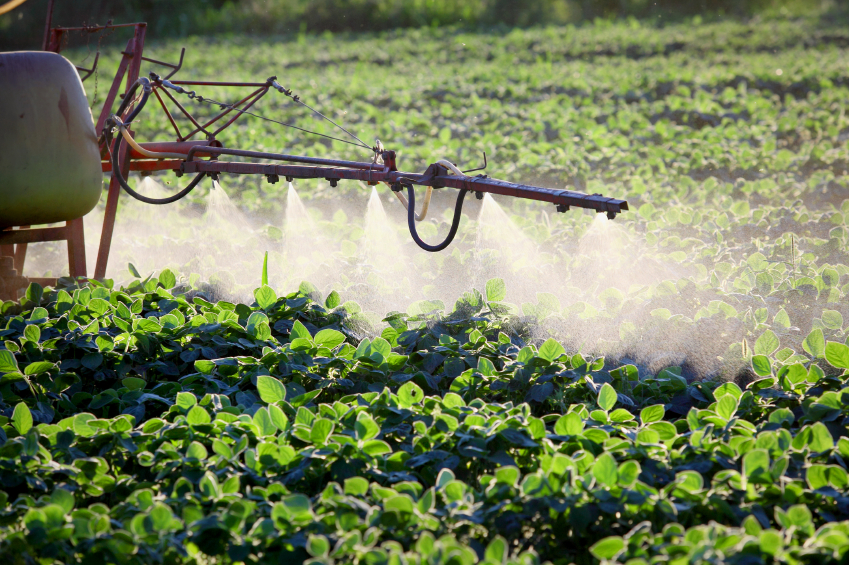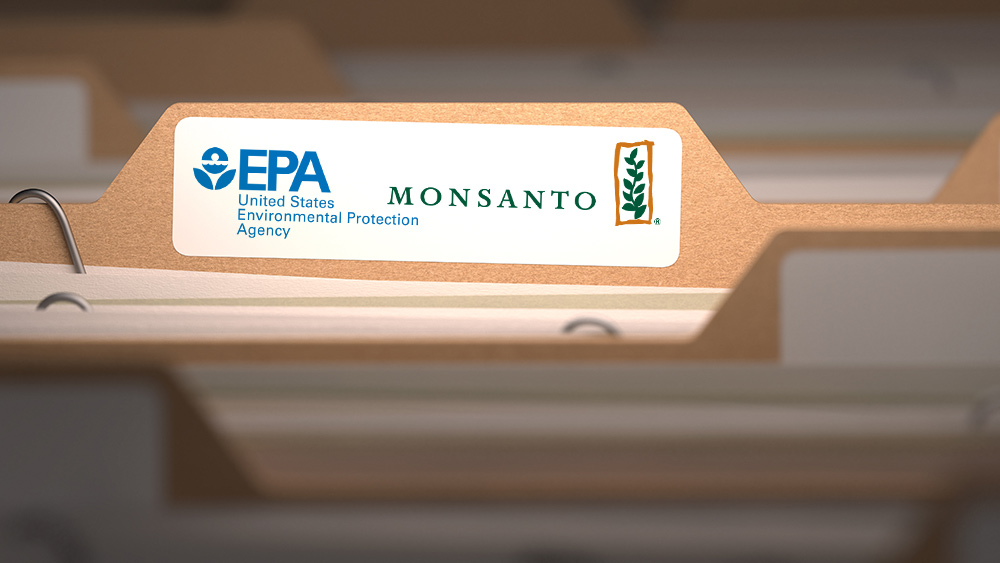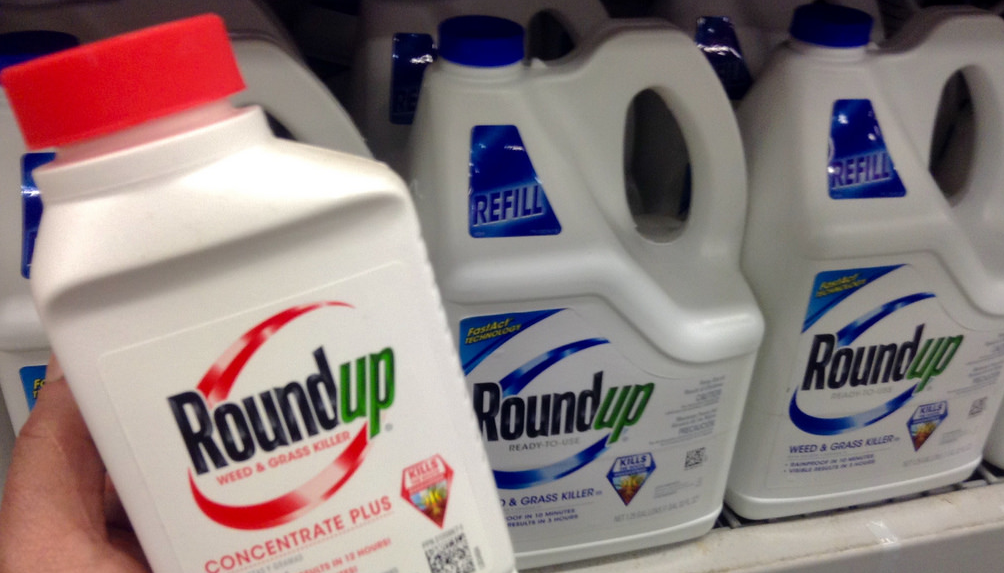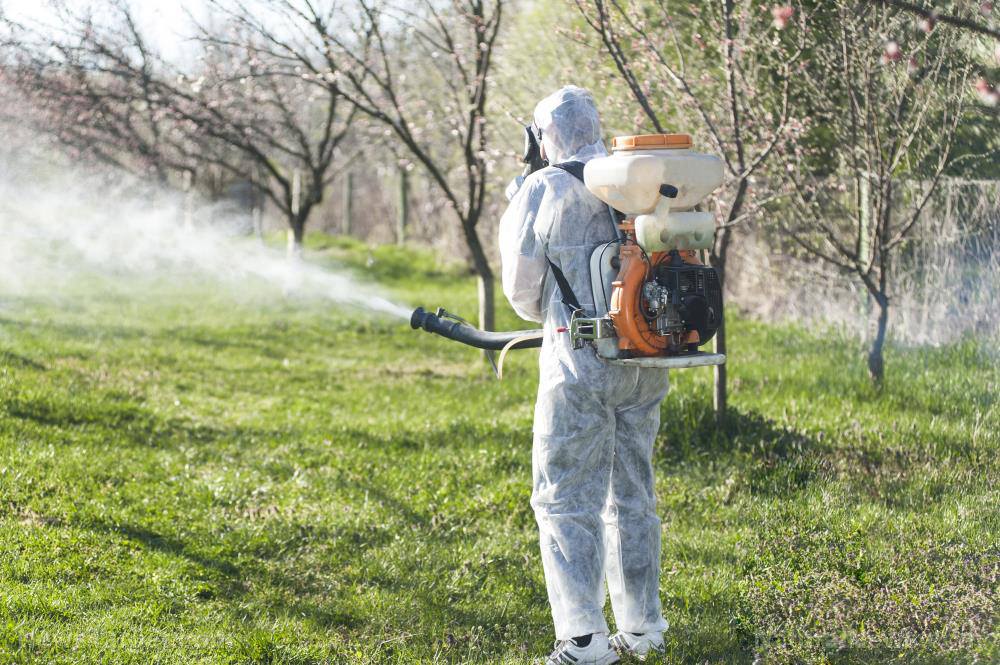Glyphosate disrupts gut microbiome – even at “safe” doses
02/25/2021 / By Divina Ramirez

Glyphosate, the key ingredient in Bayer AG’s weed-killer Roundup, is the most commonly used herbicide in the United States. Although its effects on wildlife and the environment are well-documented, its impact on humans remains controversial.
But that may soon change, thanks to a recent study by a team of European researchers. Published in the journal Environmental Health Perspectives, it showed that exposure to “safe” levels of glyphosate and Roundup could alter the composition of the gut microbiome in ways that may be linked to adverse health outcomes.
In particular, the study showed that glyphosate and Roundup interfere with the shikimate pathway, the central metabolic route in plants, fungi and bacteria that leads to the formation of amino acids. These amino acids form proteins needed for plant growth. Glyphosate also prevents plants from absorbing soil nutrients.
Experts previously thought that humans and animals do not have the shikimate pathway. That is why pesticide manufacturers claim that glyphosate and glyphosate-based products like Roundup are non-toxic to humans. But research has shown that some strains of bacteria residing in the gut do have the shikimate pathway.
Glyphosate disrupts the gut microbiome
The gastrointestinal tract is home to trillions of bacteria, known collectively as the gut microbiome. It is crucial for digestion, but it also has a major influence on overall health. In fact, the gut microbiome is involved in the onset and progression of various serious conditions, such as obesity, diabetes, depression and even cancer.
Due to its widespread use, glyphosate is frequently detected in many commercial crops and food products. It is primarily excreted in the feces, leading experts to believe that the gastrointestinal tract is exposed to the highest concentrations of glyphosate. But it is still unclear if glyphosate is metabolized in the gut.
To analyze glyphosate’s effects on the gut microbiome, the researchers conducted a 90-day toxicity test on seven groups of female rats. Three groups received glyphosate in their drinking water each day at the following dosages: 0.5 milligrams per kilogram of body weight (mg/kg), 50 mg/kg and 175 mg/kg.
Three more groups received a glyphosate formulation (Roundup MON 52276) in their drinking water each day at the same glyphosate-equivalent dosages. The last group served as the control.
The three dosages represent the European Union’s (EU) acceptable daily intake (ADI) of glyphosate, as well as its “no observed adverse effect level” (NOAEL) of the herbicide. They also represent the U.S. NOAEL.
The ADI is the dose that regulators deem safe to ingest on a daily basis. Meanwhile, the NOAEL is an exposure concentration at which no detectable adverse effects occur. These metrics are used in industry tests.
Using shotgun metagenomics and metabolomics, the researchers found that all three dosages of glyphosate and Roundup MON 5227 caused shifts in bacterial populations in the gut.
Rats fed Roundup MON 52276 also developed signs of oxidative stress in their blood. Oxidative stress can lead to cell and DNA damage, which is thought to be one of the primary causes of cancer. Roundup MON 52276 also caused stronger adverse effects than glyphosate alone.
Lead author Michael Antoniou of King’s College London said their study indicates that industry regulators are relying on outdated tests that fail to protect human and environmental health.
Moreover, he said their findings underscore the importance of testing the toxicity not only of glyphosate alone but also of glyphosate formulations such as those manufactured by agrochemical companies like Bayer AG.
Overall, the study casts doubt over the regulatory safety limits for glyphosate intake. So while regulators catch up with the latest technology for assessing toxicity, people should avoid exposure to glyphosate and pesticides containing glyphosate as much as possible. (Related: The link between glyphosate exposure and autism.)
Go to Glyphosate.news for more articles on the health risks linked to glyphosate exposure.
Sources include:
Submit a correction >>
Tagged Under:
Bayer, digestive health, glyphosate, gut microbiome, herbicides, Roundup, toxic chemicals
This article may contain statements that reflect the opinion of the author
RECENT NEWS & ARTICLES
COPYRIGHT © 2018 EVILBAYER.COM
All content posted on this site is protected under Free Speech. EvilBayer.com is not responsible for content written by contributing authors. The information on this site is provided for educational and entertainment purposes only. It is not intended as a substitute for professional advice of any kind. EvilBayer.com assumes no responsibility for the use or misuse of this material. All trademarks, registered trademarks and service marks mentioned on this site are the property of their respective owners.



















